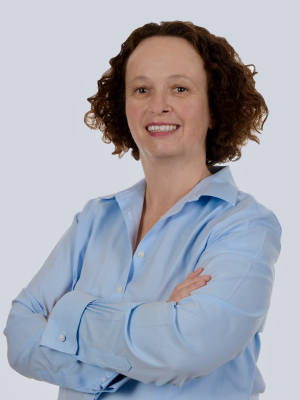 “You are the sky. Everything else – it’s just the weather.”
“You are the sky. Everything else – it’s just the weather.”
― Pema Chödrön
It can be tough to follow arbitrary advice to be less stressed, do more self-care, and spend more time ‘sparking joy’ while writing emails and trying to eat a salad. Our advice this Women’s History Month is much like Nike’s clever advertising campaign of “You can’t win, so win”. If you want to go all the way, then go all the way in your career in Corporate America, do not let anyone tell you that you cannot succeed. We would go further and say win on your own terms, define your own success however that is to you. Know what you want and what you are ready to do and if it resonates with you to avoid stress, overwork and overwhelm in these strange times then that, too, is a message to listen to.
In a world overflowing with distractions, tapping into your own voice and ignoring nonsense is a powerful act of self-care and productivity. We take in over five times more data daily than we did in 2011 and being stricter about the scroll in our lives allows us to preserve our energy, focus on what truly matters, and build lives that are more fulfilling and less cluttered with irrelevant noise. According to experts, fear based topics like wars, erratic leaders, fear of layoffs, financial loss and reduction of rights—which seems to be our daily fare so far in 2025—creates more overwhelm and attentional bias than cat videos. Ignore the noise.
Start with You
You learn from others that inspire you and then spend time figuring out how to live your values. This year instead of the hashtags for International Women’s Day, I invite you to spend thirty minutes going deeper with yourself to figure out how to embrace what aligns with your values to create space for growth, happiness, and success.
Is the course you’re following leading you to the destination you want to reach? Are you living “outside in,” following a path where others have set the milestones and dictated how you should take each step? If this works for you, great, but if you find yourself asking “Is this it?” then consider what Bonnie Wan writes in her book “The Life Brief- A Playbook for No Regrets Living!”. She recommends “inside out” living, meaning getting real about what you want, however unconventional. And, if that means being the CEO or a dog spa owner, do everything you need to do to make it happen.
Know your Values
If you listed your values on paper, what would you write down? How would you say you lived those values? Give yourself some examples to test for accuracy as you may find you want to change words. Make your values verbs as it is in the doing of them that matters. What percentage of the time do you spend living those values?
If this feels daunting, then consider a few exercises to ensure you are spending as little as an hour per year on ensuring you know your values and are living them. Imagine you are celebrating your 100th birthday – where are you and with whom? What are you saying about what your life has looked like? What are the people around you saying in their speeches? What do you have to do now to make that a reality?
Increase your Mental Clarity
When we stop allowing ourselves to be distracted by trivial matters or irrelevant opinions, we free up mental space for things that truly require our attention. Focusing on what’s important helps us sharpen our thoughts, increase clarity, and make better decisions. Ignoring nonsense isn’t just about avoiding distractions; it’s about consciously choosing where to direct our energy. It is about being mindful and intentional about what we are doing but moreover, why we are doing it. Ignoring unproductive conversations or toxic comments allows us to maintain control over our reactions, helping us stay calm, composed, and more emotionally resilient in difficult situations. We can spend the time building trust with our colleagues so that we can get to a place of saying and hearing hard things and having radical candor.
Time is our most valuable resource. Every minute spent on trivial or irrelevant matters is a minute taken away from what truly matters. By ignoring nonsense, we reclaim that time and can devote it to more meaningful and productive activities—whether it’s pursuing personal goals, focusing on work, or spending quality time with loved ones. By being selective with your attention, you can cultivate relationships that matter and spend time on people and experiences that energize you. Not everything deserves your time and energy. Recognize what’s important and focus on it. Whether it’s in your personal life, at work, or online, ask yourself: Is this worth my attention? If the answer is no, let it go.
Instead spend time reminding yourself of your personal and professional priorities. This helps you keep perspective and make decisions about where to focus your time and energy. When nonsense arises, you can quickly assess if it aligns with your goals or if it’s something you can afford to ignore. Social media is a breeding ground for nonsense. Whether it’s heated debates, inflammatory opinions, or people airing personal grievances, it’s easy to get sucked into the drama. Consider taking regular breaks from social media or curating your feeds to include only meaningful content.
Strengthen Your Confidence by Being True to Yourself
Letting go of the urge to please everyone or respond to every negative comment builds self-assurance. By ignoring what doesn’t align with our values or doesn’t contribute to our growth, we assert our boundaries and reinforce our self-worth. Over time, this enhances our confidence and makes it easier to focus on our goals without being derailed by irrelevant opinions.
Of course, there are times when engagement is necessary—whether it’s addressing genuine concerns, advocating for yourself, or standing up for others. The key is knowing when something is worth your time and when it’s just noise. When in doubt, pause and evaluate the potential impact of engaging.
At the end of the day, success—however you define it—begins with clarity, confidence, and the courage to ignore the noise. By tuning out distractions and aligning your actions with your values, you create a path that is both fulfilling and sustainable. So, as you move forward, ask yourself: What truly deserves your time? What will you let go of to make space for what matters?
Define your own version of winning—and go all in.
Work with us as you navigate your career. Coaching starts at $300 per session and we offer a fifteen-minute exploratory needs call for assessing how we can help you and for a chemistry fit. Book HERE
By Nicki Gilmour, founder and CEO of theglasshammer.com and Evolved People Coaching

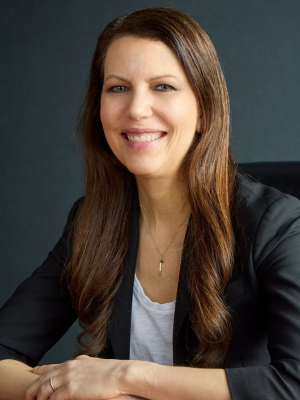
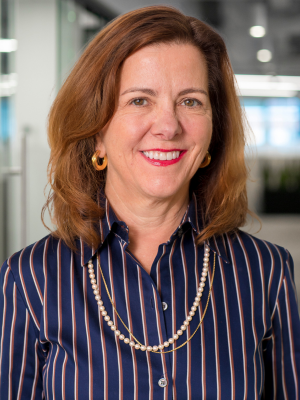
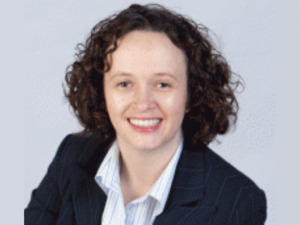
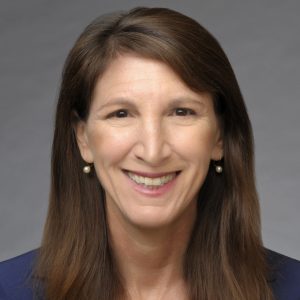 By Laura Keidan Martin, National Chair of Katten Muchin Rosenman’s Women’s Leadership Forum and member of the firm’s Board of Directors and Executive Committee
By Laura Keidan Martin, National Chair of Katten Muchin Rosenman’s Women’s Leadership Forum and member of the firm’s Board of Directors and Executive Committee
